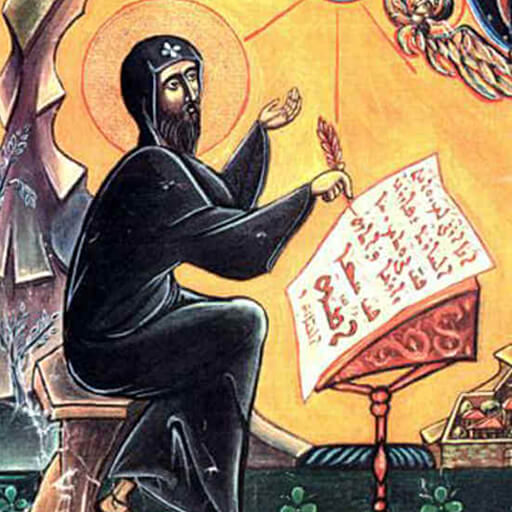Friday of the Week of Hawarayeen
Friday, April 25
Maronite Calendar
Letter to the Romans 10,4-12
For Christ is the end of the law so that there may be righteousness for everyone who believes.
Moses writes concerning the righteousness that comes from the law, that ‘the person who does these things will live by them.’
But the righteousness that comes from faith says, ‘Do not say in your heart, “Who will ascend into heaven?” ’ (that is, to bring Christ down)
‘or “Who will descend into the abyss?” ’ (that is, to bring Christ up from the dead).
But what does it say? ‘The word is near you, on your lips and in your heart’ (that is, the word of faith that we proclaim);
because if you confess with your lips that Jesus is Lord and believe in your heart that God raised him from the dead, you will be saved.
For one believes with the heart and so is justified, and one confesses with the mouth and so is saved.
The scripture says, ‘No one who believes in him will be put to shame.’
For there is no distinction between Jew and Greek; the same Lord is Lord of all and is generous to all who call on him.
Holy Gospel of Jesus Christ according to Saint Luke 24,36-45
While they were talking about this, Jesus himself stood among them and said to them, ‘Peace be with you.’
They were startled and terrified, and thought that they were seeing a ghost.
He said to them, ‘Why are you frightened, and why do doubts arise in your hearts?
Look at my hands and my feet; see that it is I myself. Touch me and see; for a ghost does not have flesh and bones as you see that I have.’
And when he had said this, he showed them his hands and his feet.
While in their joy they were disbelieving and still wondering, he said to them, ‘Have you anything here to eat?’
They gave him a piece of broiled fish,
and he took it and ate in their presence.
Then he said to them, ‘These are my words that I spoke to you while I was still with you that everything written about me in the law of Moses, the prophets, and the psalms must be fulfilled.’
Then he opened their minds to understand the scriptures,
St Mark
Evangelist and Apostle
Celebrated April 25
Mark was the son of a Christian named Mary, whose home in Jerusalem became the place of gatherings for Christians (Acts 12: 12). He was also a relative Barnabas, the Cypriot levite. He had both a Jewish name, “John” and a Roman name, “Mark”. He traveled from Jerusalem to Antioch, with Paul and Barnabas, in order to preach the gospel. He then continued on to Cyprus, Asia Minor and Pamphilia where he left Paul and Barnabas and returned to Jerusalem. Later on he again accompanied Barnabas. We find him with Paul, who was imprisoned at Rome, and with Peter, who called him “Mark, my son.” He transcribed the preach· ing of Peter at Rome into Greek around the year 65. The establishment of the Church of Alexandria is attributed to him as is evident from its title, “The preaching of Mark.” The various accounts of his life agree that he was martyred at Alexandria on Easter Day around the year 70; the pagans seized him, put a rope around his neck and dragged him through the streets of the city all day. May his prayers be with us. Amen.
الانجيل المقدس كاملا (متى، مرقس، لوقا، يوحنا) بالصوت والصورة من مزار سيدة لبنان حريصا
الانجيل المقدس كاملا (متى، مرقس، لوقا، يوحنا) بالصوت والصورة من مزار سيدة لبنان حريصا عمل يدعو للصلاة والتأمل في كلمة الرب
اداء: الاب فادي تابت رئيس المزار
اخراج: اسعد شديد
مرافقة موسيقية: بيار مطر وفادي ابي هاشم
Daily Bible Reading
According to the
Maronite Catholic Church Calendar
